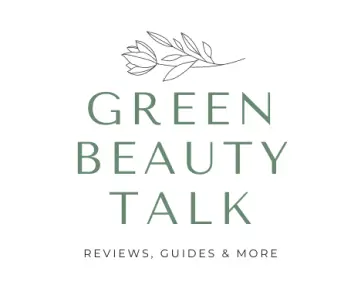Moringa oil is one of the most multifunctional natural oils known. This well-rounded plant oil seems to provide all skin-enhancing benefits you can think of, from inflammation, antioxidation, anti-ageing, cleansing, hydration, antibacterial to skin healing. It seems to do it all so it comes with no surprise that now is becoming more and more popular.
Moringa oil is used on the skin in various ways and is also commonly used to treat many inflammatory skin conditions, including eczema. So if you are looking to treat your eczema naturally, in this article you will learn how moringa oil can help and how to use it to get relief from your eczema.
What is moringa oil?
Moringa oil is the oil extracted with the cold press of seeds from the drumstick tree, also called the Miracle tree. It originates from the Himalayan mountains and is commonly grown in Asian and African countries. This oil has been used for years in Chinese, Indian, and African cultures for its therapeutic properties.

Moringa oil is also referred to as Ben oil due to its high content of behenic acid – a fatty acid that provides a protective barrier against the environment to maintain good healthy skin.
This lightweight oil has a light yellow colour and nutty flavour and is scientifically proven to have skin-protecting effects due to the presence of a broad spectrum of active compounds.
This plant oil shows powerful antioxidant, antibacterial, toning, astringent, and anti-inflammatory properties. This is why it is often used to formulate moisturizing creams, body washes, cleansers, and anti-inflammatory treatments.
Below are some of the incredible benefits of this miracle oil for the skin.
Benefits of moringa oil on the skin
When it comes to multitasking ingredients, moringa oil is a reference in the cosmetic world and here’s why :
- It has anti-inflammatory properties
Moringa oil has a high concentration of oleic acid (73%), which gives it soothing and calming properties.
In a recent study, moringa oil was proven to reduce skin inflammation by boosting the production of keratin-producing skin cells (keratinocytes). Keratinocytes are responsible for protecting the skin against microbial, viral, fungal, and parasitic invasion. By boosting their creation, moringa oil contributes to protecting the skin against free radicals and transepidermal water loss.
It also contains two active compounds, flavonoids, and isothiocyanates, that help regulate inflammation in the skin, which is why this oil is recommended for treating chronic skin inflammatory disorders.
- It is a potent antioxidant and anti-ageing
Ben oil is made up of many phytochemicals that make it capable of protecting the skin from free radicals and repair damages caused by UV rays. These include flavonoids and antioxidant vitamins.
Flavonoids such as quercetin and kaempferol protect the skin from free radicals and reduce skin inflammation.
Moringa oil is also rich in antioxidant vitamins E, A, and C that protect the skin from oxidative stress and photoaging. It also contains carotenoids in the form of beta-carotene known to slow down and repair signs of photoaging.
- Moisturising effect
A 2020 study established that due to its chemical composition, moringa oil is suitable for skin hydration. This is made possible by the oil’s high concentration of oleic acid (<70%), an essential fatty acid capable of increasing the skin’s permeability, therefore, reducing transepidermal water loss and skin inflammation, which is good for dry skin.
- Cleansing properties
This oil’s fatty acid profile gives it cleansing and conditioning properties, making it a good soap ingredient. Besides oleic acid, moringa oil contains other essential fatty acids like palmitic and stearic acid that help trap and eliminate dirt on the skin.
- Skin healing
This oil contains stearic acid, an emollient that forms a protective barrier that prevents further infections of lesions, cuts, and wounds on the skin.
- Antifungal activity
Research proves the moringa oil is effective against several dermatophytic fungi that cause skin infections, such as ringworm on the skin.
- Antibacterial properties
Moringa oil contains active compounds that help fight against bacterial infections such as Staphylococcus epidermidis and Staphylococcus aureus. These compounds include alkaloids, flavonoids, glycosides, saponins, and tannins.
Benefits of moringa oil on eczema
Eczema or dermatitis is a generic term used to refer to skin inflammation. This is a chronic skin disorder that causes areas of the skin to dry out and redden. It often manifests through the appearance of scaly, inflamed, and itchy red patches or rashes on the skin.
To date, experts do not know what causes this skin condition. Most data point to reactions to certain products, foods, and hormonal imbalances as triggers.
Although there is not enough research on the topical application of moringa oil, its anti-inflammatory and skin healing properties suggest it can treat various types of eczema.
Moringa oil for baby eczema
Baby eczema is a common term used to refer to atopic dermatitis and contact dermatitis in children. These two forms of eczema cause the eruption of irritated, dry and itchy patches on the baby’s skin.
Thanks to its anti-inflammatory and antibacterial properties, moringa oil can soothe baby eczema flare-ups by regulating the skin’s inflammatory response. Using a moringa fragrance-free moisturizing cream or gentle moringa soap can help clear your baby’s skin and calm down itches.
Moringa oil for seborrheic dermatitis
This form of eczema is thought to be caused by the scalp’s abnormal response to the presence of Malassezia- a yeast naturally present on the skin. This disorder manifests in the oiliest areas of the scalp.
Seborrheic eczema causes flakiness on the scalp and sometimes on the eyebrows and facial hair ( for men), followed by inflammation, redness, and severe itching.
Moringa oil has antifungal and antibacterial properties that help treat this condition by offering proper nourishment and limiting the growth of fungi and bacteria on the scalp. Using moringa-based shampoos free of harsh detergents is a great way to calm flare-ups.
Moringa oil for perioral dermatitis
Perioral eczema manifests with inflammation on areas around the mouth, nose, and sometimes eyes (periocular dermatitis). This disorder causes the skin to be dry and itchy, with pustule-like rashes or bumps appearing on affected areas.
Moringa oil has anti-inflammatory and cleansing properties that make it a good ingredient for skincare products formulated for eczema-prone skin.
Although no study has yet been carried out to evaluate the action of moringa oil on this form of eczema, there are lots of anecdotal reports that affirm that using moringa oil-based products helps get rid of perioral dermatitis.
For anyone dealing with this form of eczema, using a gentle moringa oil soap or cleanser may help soothe and reduce irritations.
How to use moringa oil for eczema
- As a facial oil, pure moringa oil can potentially be irritating when applied directly to the skin. Therefore you want to make sure you mix it with other carrier oils such as argan or sunflower oil before application.
- Add a few drops of it into your regular moisturizer for a quick boost.
- You can purchase a product that already contains moringa oil, such as bar soaps, cleansers, serums, creams, or sunscreen.
What is the best moringa oil to buy?
To purchase 100%- pure moringa oil, here are some tips to look out for:
- Make sure your oil was extracted via cold press and certified organic for topical use. Some solvent extracted versions are used as machinery lubricants and should not go on the skin.
- Undiluted moringa oil has a pale yellow colour and pleasant nutty smell similar to peanuts. Any clear product will indicate signs of little to no moringa oil in the product.
- When purchasing pure moringa oil, make sure to check whether it is a carrier or essential oil. Essential oils are more concentrated forms of plant extracts and could cause irritations if applied directly to the skin.

Petra Nakashian (previously Kravos) is a dedicated natural health and beauty blogger, driven by the loss of her parents to cancer, which led her to meticulously research beauty product ingredients. With over 10 years of experience, her in-depth knowledge has made her a trusted expert in the field. Founder of Be Healthy Now and Green Beauty Talk, Petra recently expanded her expertise with Beauty Insights Hub, exploring a wider range of beauty treatments. Committed to transparency and honesty, her work is a vital resource for navigating the complex world of beauty.

